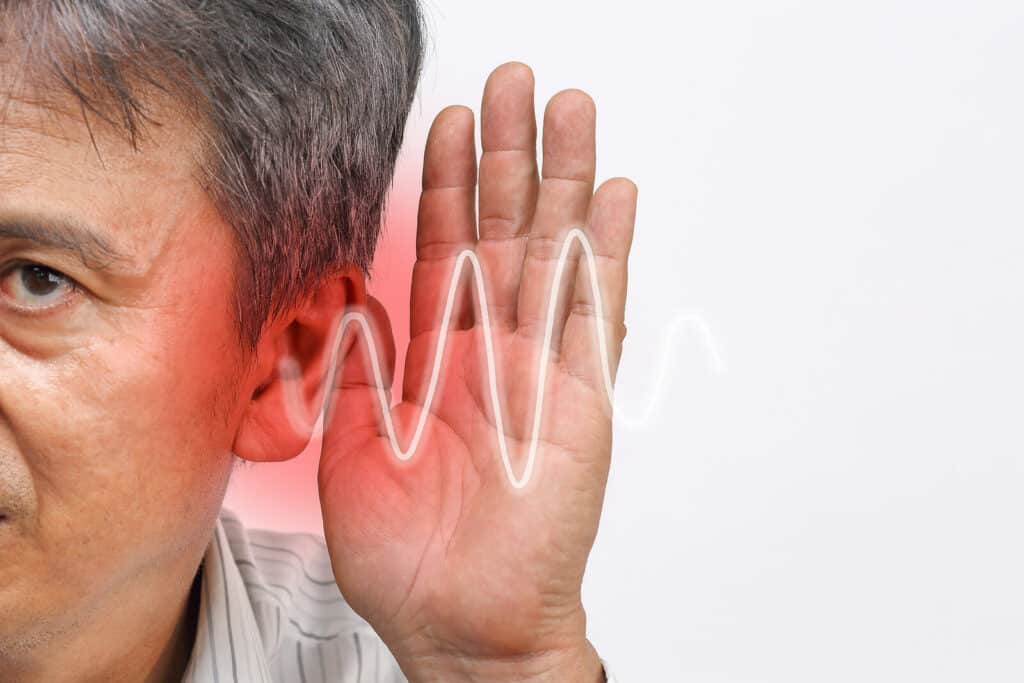Did you know that diabetes can increase the risk of developing hearing loss? Studies show that people with diabetes can experience a much higher risk of experiencing impaired hearing. The CDC estimates that 37 million people have diabetes which is 11.3% of the U.S. population. Additionally, 1.5 million people are diagnosed with diabetes every year according to the American Diabetes Association.
Diabetes can impact health in significant ways including increasing health risks. Research highlights a correlation between diabetes and hearing loss. Hearing loss is a medical condition that reduces capacity to hear and process speech as well as sound. If you have diabetes or are prediabetic, it is important to practice measures to support your hearing health and wellness.
Link Between Hearing Loss & Diabetes
A number of studies show a link between hearing loss and diabetes. A major study that examines the relationship between hearing loss and diabetes was published in the Annals of Internal Medicine. This study involved researchers collecting and analyzing data for over 5,000 participants with and without diabetes who had their hearing capacities assessed. Researchers found that among the participants with diabetes:
- 21% experienced a mild or greater hearing loss of low or mid-frequency sounds compared to 9% of participants without diabetes.
- 54% experienced a mild or greater hearing loss of high-frequency sounds compared to 32% of participants without diabetes.
- Adults with prediabetes had a 30% higher rate of hearing loss
These findings show that people with diabetes were more than twice as likely to experience mild or greater hearing loss of low frequency sounds compared to people without diabetes. This data reveals a significant correlation between both conditions, supporting extensive research that identifies diabetes as a risk factor for hearing loss. The leading research on this study, Catherine Cowie, Ph.D., stated: “Hearing loss may be an under-recognized complication of diabetes. As diabetes becomes more common, the disease may become a more significant contributor to hearing loss.”
Impact of Diabetes on Hearing
Diabetes is a medical condition that involves how the body processes food and converts into energy. Food is broken down into glucose which enters the bloodstream and insulin (produced by the pancreas) is released to regulate glucose levels to prevent them from becoming high. Diabetes is a condition that is caused by the pancreas not producing enough insulin or the insulin that is produced is not being used effectively. This results in excess glucose that remains in the bloodstream which can impact health in various ways.
Diabetes can damage blood vessels, nerves, and restrict blood flow throughout the body including in the ears. There are sensory cells, nerves, and auditory pathways that lead to the brain that play a critical role in how sound is absorbed and processed. Constructed blood flow and damaged blood vessels can impact these components, reducing their capacity to process incoming soundwaves effectively. This includes impairing the sensory cells in the cochlea which convert sound waves into electrical signals that get carried to the brain. This can contribute to the development of hearing loss
Tips to Protect Hearing Health
There are effective strategies you can practice to protect your hearing health. Prioritizing your hearing health is especially important for people with diabetes and prediabetes who experience a higher risk of experiencing impaired hearing. The CDC estimates that 96 million people, ages 18 and older, have prediabetes. This is 38% of the adult population in the U.S. which underscores the importance of protecting hearing health!You can protect your hearing health by:
- Testing hearing regularly. Conducted by hearing healthcare specialists, hearing tests involve a painless process that measures hearing capacities in both ears. This identified any hearing loss and the degree of impairment you could be experiencing. Getting your hearing tested yearly is a great way to monitor your hearing health and identify any changes you may experience over time.
- Prioritize care for diabetes. If you have diabetes, be sure to prioritize care and attention to your diabetes. This includes taking all necessary medications and practicing the protocols outlined by your doctor.
Contact us today to learn more about how you can protect your hearing health and to schedule an appointment for a hearing consultation.





